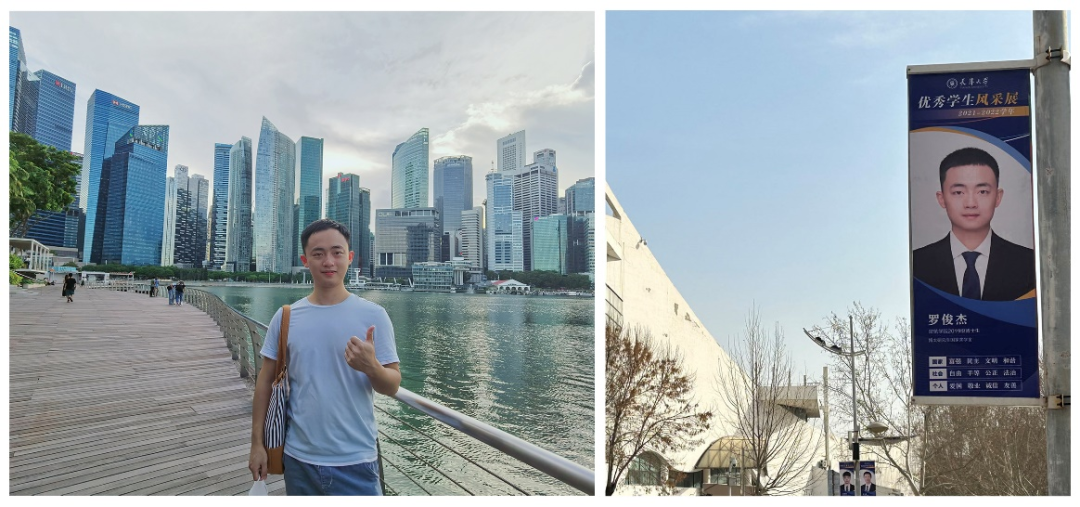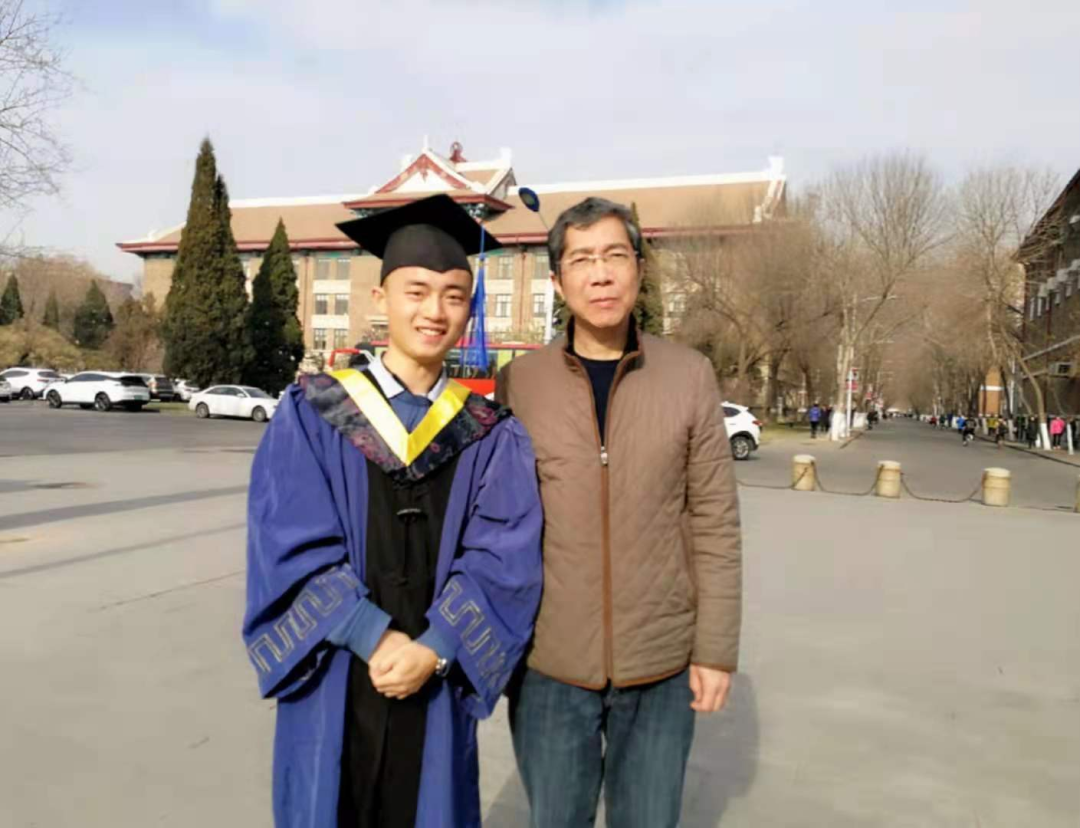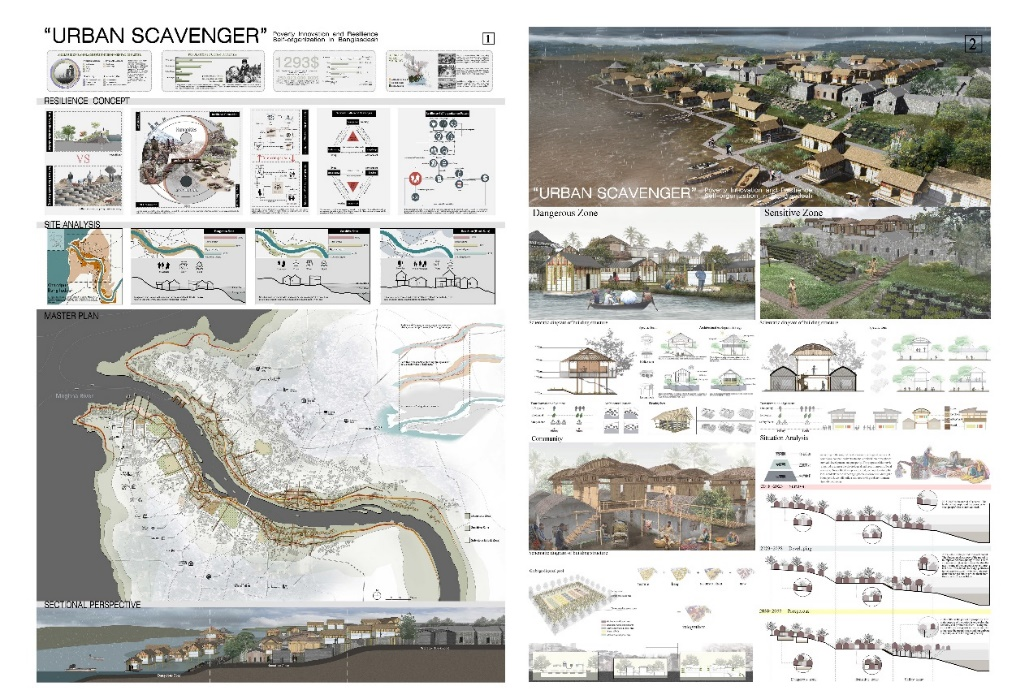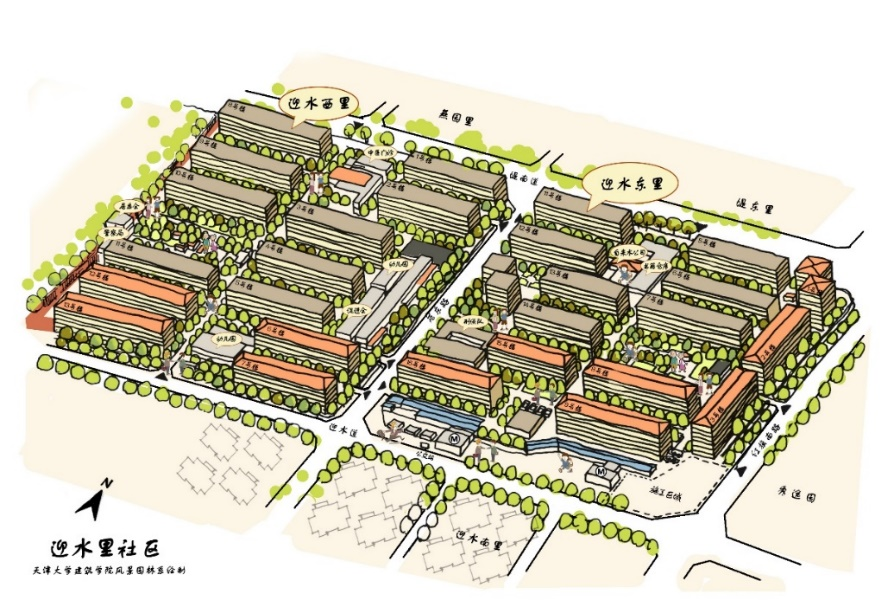Editor’s note: Luo Junjie, a 2019 PhD candidate majoring in Landscape Architecture, is mainly engaged in research related to digital twin cities and digital landscape. Up to now, he has published 13 academic papers, including 7 papers as the leading author.
During his academic years at TJU, he presided over one project of Tianjin Postgraduate Research Innovation Fund, participated in three other research projects, and completed two monographs.
He has won multiple awards including the nomination award of IFLA Student Design Competition, the silver award of China Habitat Design Academic Year Award, the third prize of Zijin Award of Architectural Design and Environmental Art Contest, and the bronze award of "China Construct" - National Biennale of Environmental Art Design.
In addition, he is a five-time winner of the national scholarships, the first-class academic scholarship of Tianjin University throughout his academic years and the CSC scholarship, and has been honored as the Outstanding Graduate and the Merit Student of Tianjin University.
Now, let’s get a glimpse of Luo’s life at TJU.
I am Luo Junjie, a "veteran TJUer" who has been studying and living at Tianjin University (TJU) for more than ten years. TJU is the first stop on my academic journey and the place where I am now about to complete my doctoral degree. At the School of Architecture, I enjoyed the most memorable years of my life and fulfilled my bachelor's, master's, and doctoral studies here.
TJU campus, where my story began
TJU is where my youth began.
Soon after arriving on the campus, I was impressed by the colorful campus culture and strong academic atmosphere. In this historic university, as my seniors told me, “There are countless opportunities waiting for students as long as they take the initiative and work hard enough.”
In the summer of my sophomore and junior years, I proactively joined the project of mapping ancient buildings in the Summer Palace and the Eastern Qing Tombs. Together with my teachers and fellow students, I "spoke" with these exquisite cultural relics in the baking sun, feeling the profoundness of Chinese ancient buildings. Later, during my graduate studies, I participated in the landscape feature tapping of the Beijing-Hangzhou Grand Canal and its digital preservation. Under the guidance of my supervisor, Professor Cao Lei, I along with my fellows, contributed to the construction of the Grand Canal National Cultural Park.

Luo Junjie
The past ten years at TJU have transformed me from an excited freshman to a scholar in the field of digital research on the built environment. Here I got to know numerous outstanding teachers and schoolmates who have given me generous help and support, especially those friends I made in my doctoral study years with whom I shared common interests. Together, we discussed academic issues, exchanged research insights, and created so many unforgettable moments.
In the past decade, I also witnessed the continuous development of TJU. From the university's 120th anniversary to the 80th anniversary of the School of Architecture, I experienced and engaged in many landmark events. It was such an honor to participate in designing the sponge city campus for TJU's new campus, and I was thrilled to see the 3D model I built on the computer being translated into reality in the field. I was fortunate to serve as a volunteer at the 80th anniversary of the School of Architecture, and upon seeing the efforts made by many outstanding alumni in improving the built environment, I made my resolve to contribute to the construction and research of our country's built environment.
Think big and Work Hard
When we first entered TJU, our counselor told us, "Tianjin University is not only a 'big dock' for you to set sail for dreams but also a 'training ground' that prepares you for your future pursuit of life aspirations. You are expected to aim high and do big things."
However, at that time, I did not know how to study efficiently or how to conduct scientific research. Thanks to my dedicated teachers, I came to realize that in addition to diligence, clear and practical goals are also necessary for my studies. Awareness of goals is an essential factor in conducting effective learning and high-quality research. As I progressed, I participated in several national research projects, and under the guidance of my supervisor, Professor Cao Lei, I learned that the first step in scientific research is to raise awareness of goals.

Luo Junjie and his supervisor, Professor Cao Lei
At TJU, I gained a lot of professional knowledge. From basic hand-drawn architectural sketches to parametric modeling of architectural spaces, from designing urban landscapes to analyzing spatio-temporal big data in the built environment, I have benefited greatly from a variety of high-quality courses and lectures. However, the most important lesson that TJU taught me was not the knowledge from particular classes, but how to apply critical thinking to systematically and structuredly approach problems.
"In your daily study and research, I expect you to exercise critical thinking," as Professor Cao Lei put it, "to analyze the objective nature of the problem, grasp its essence, make bold assumptions, seek evidence through comparative analysis, and embrace trial and error."

Winning Proposal of IFLA Student Design Competition
During my studies at TJU, especially during the graduate years, I would often encounter tricky problems or dilemmas. In the International Federation of Landscape Architects (IFLA) Student Design Competition, for example, our research site lay in the lower Ganges region of Bangladesh, where long-term flooding has led to a low quality of life for the locals.
Due to regional poverty and lack of infrastructure, large-scale use of modern flood control facilities to mitigate flooding was not feasible. Therefore, we proposed an innovative design concept called "Bottom to Top, Innovation from Poverty." As a result, a well-designed flood buffer zone was created, and dams were constructed using materials such as discarded tires, plastic containers, and local bamboo that were affordable for the local population. Ultimately, our proposal won the award in the IFLA Student Design Competition.
One of my major research works during my doctoral studies was to quantify the spatial characteristics of the landscape of the Beijing-Hangzhou Grand Canal and related urban rivers using digital technologies. Currently, urbanization and many issues concerning the built environment have been the focus of public attention and have had an impact on the conservation of landscape heritage, such as the Grand Canal. Both require a systematic method to identify and evaluate landscape features on a large scale, thereby serving as a scientific basis for environmental management and decision-making. However, the established research methods fell short of meeting our expected goals, nor were they suitable for the three-dimensional perception and evaluation of large-scale river landscape environments.
To solve these thorny problems, our team creatively used drones to capture a series of panoramic imagery and then identified and quantified the landscape features of the Grand Canal through computer vision and virtual reality technology. As a result, our efforts yielded satisfactory results, with the article "Semantic Riverscapes: Perception and evaluation of linear landscapes from oblique imagery using computer vision" published in Landscape and Urban Planning, a top journal in the urban planning and landscape architecture industry in China.
Apply Theory to Practice, Concerns into Architecture
Architecture and landscape architecture are very practical disciplines and place a high demand on students' practical skills. The drawings conceived within the design studio may not be applicable in real scenarios in their entirety. Therefore, it is mandatory for every built environment researcher and designer to carry out on-site research and objective analysis of the actual problems facing the research area.
I learned a lot from participating and organizing many community revitalization workshops during my graduate studies. It's a good way to help improve the quality of life for local residents through volunteer design work. We provide a consultative platform for community residents, government authorities, public welfare organizations, and designers to gather together and discuss matters thoroughly. We have developed multiple creative landscape improvement plans based on our expertise for Yingshuili Community, Fenghu Community, and Nan Cui Ping Park in Tianjin. Such in-depth participation is conducive to discovering actual problems faced by the community residents and developing proposals aimed at improving their quality of life. These design solutions have also received high praise from the locals.

Hand-drawn Map of landscape transformation in Ying Shui Li Community
Grateful to the past and look forward to the future
My ten years at TJU have turned me into an enterprising doctoral candidate with critical thinking and the courage to explore the unknown. Now I have come to the crossroad of completing my doctoral studies. Looking back, I owe my achievements to my sense of identification as an industrious and dedicated TJU student, to the meticulous guidance of my supervisor, and to the help and support of many kind teachers and friends. I cannot thank them enough for what they have done for me.
Moreover, the TJU campus is home to precious friendships and countless happy times worth remembering. I will never forget those hardworking days my classmates and I spent together. It was a blessing. And I reckon that it is our joint efforts that have made the campus a land of vitality, wisdom, and warmth, where countless talents can pursue their bright dreams.
Aside from the strong academic atmosphere, our campus is blessed with the fragrance of crabapple blossoms. Every spring, these light pink buds bloom on the campus, filling the air with their aroma and enchanting everyone that passes by. Taking photos with crabapple flowers is a romantic must-have act for students during the annually held Crabapple Blossom Festival. In a sense, the crabapple blossoms on campus epitomize every TJUer's college life and our deep and enduring love for the university, the place we all call home. The day will come for each and every TJU student to go out of the campus to the wider world stage.
May you still remember the fragrance of crabapple blossoms, along with the memory of your strenuous youth, no matter how many years have passed.
By Mo Jingwen
Editor: Eva Yin






